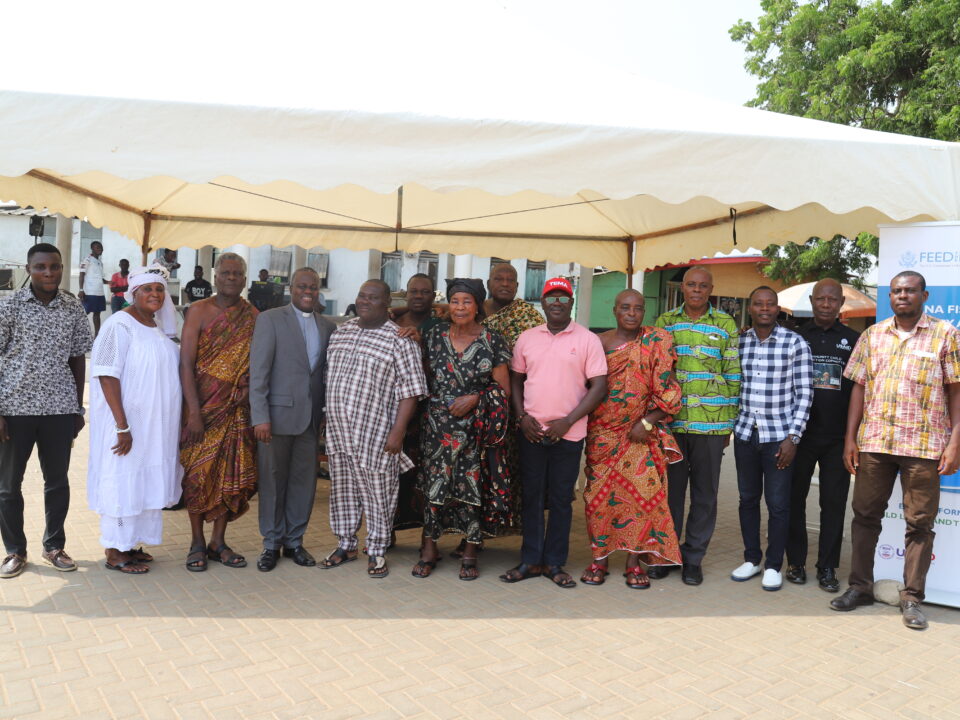
PERSPECTIVES ON WORLD MOSQUITO DAY
August 20, 2018
INCLUSIVE EDUCATION POLICY FOR CHILDREN WITH DISABILITY LAUNCHED
October 1, 2018
Taxation has been one of the crucial ways to raise revenue for a country’s development. It plays a key role in enabling governments to raise revenues for its operations, infrastructure, welfare and education defence.
SEND Ghana, earlier this week organized a forum for stakeholders which included personnel from various informal sectors to promote progressive tax for inclusive development in Ghana.
The meeting saw representatives from the Ministry of Finance and that of the Ghana Revenue Authority (GRA) engaging stakeholders on how they are affected by the progressive tax as well as how to encourage personnel in the informal sector to improve upon the payment of tax for the development of Ghana.
The 2018 mid year budget discloses three key tax policy measures to raise revenue to fund the government’s flagship projects such as the Free Senior High School (SHS). These key tax policy measures includes the Luxury Vehicle Tax which is levied based on the engine capacity of the vehicle. A vehicle is considered luxurious when the engine capacity is 3.0Litres and beyond. The tax levied on these vehicles vary due to different engine capacities used by individuals. The amount ranges from one thousand Ghana cedis (GH1,000.00) and above. Meanwhile, some sectors using such vehicles are exempted from these tax due to the work the vehicle is used for. The Ambulances and Tractors are some excluded sectors of the levy.
The Personal Income Tax is also another key tax policy measure which helps to raise revenue for the execution of projects. This tax is levied on the salary earned by workers and that takes 25% of an individual’s income. GETFUND and NHIL Levy is the other key tax policy measure used to raise revenue. This is levied on goods and services and is said to take 12.5% of profit earned from the sale of goods and the rendering of services.
However, the CSOs (Market Associations and Physically Challenged Associations. etc.) present at the meeting lamented on the fact that the results of the tax collected especially, at the market places are not used to promote the welfare of the people in this sector. This they said discourages lots of their members from being responsible in the payment of tax. Members from the various associations pleaded that they benefit from the tax being paid so they continue paying with delight.
The informal sector according to the GRA constitutes 70% percent of the country’s working population yet, only 3% tax is paid from the sector. This is said to have been caused by the fact that, traders are mostly the focused when talking about the informal sector whiles there are artisans who form part of the informal sector yet they are not held to perform that civic responsibility to the nation.
Most of the personnel in the sector are not easily located because they are not based at one location and are working individually with no specific body to bring them together so they can be charged to pay taxes.
THE TAX PAYER IDENTIFICATION NUMBER (TIN).
According to the GRA, every working individual is mandated to have an identification number, thus register with the GRA. The individual with a TIN also has some benefits to derive from the process since one is identified to be a responsible citizen. The law court demands this from an individual when who files a case as well and as such, services will not be rendered to individuals who do not perform the responsibility of paying their taxes. The TIN therefore, is not only used for the purpose of tax payment but other purposes.
Individuals operating an entity are required to get a TIN for the entity as well as their individual ones. This helps the GRA to know which businesses are in operation so revenue would be raised for the economy.
The representatives of the Market Associations and the the socially excluded organisations yearn to see results of the tax collected so they can encourage their members to perform their civic responsibility. Infrastructures are to be developed with services improved to promote the well- being of individuals.
Participants were reminded that it is a collective responsibility for the government to produce results in order for the tax payer to continue paying the tax.
Mavis Naa Korley Aryee,
Member, Intern – CYIB-Curious Minds



